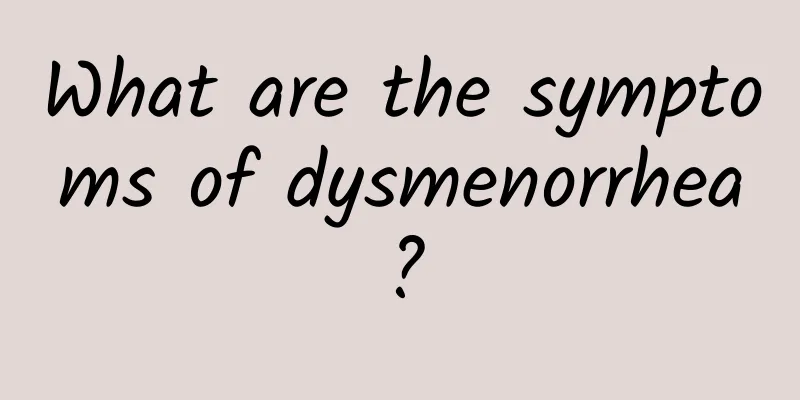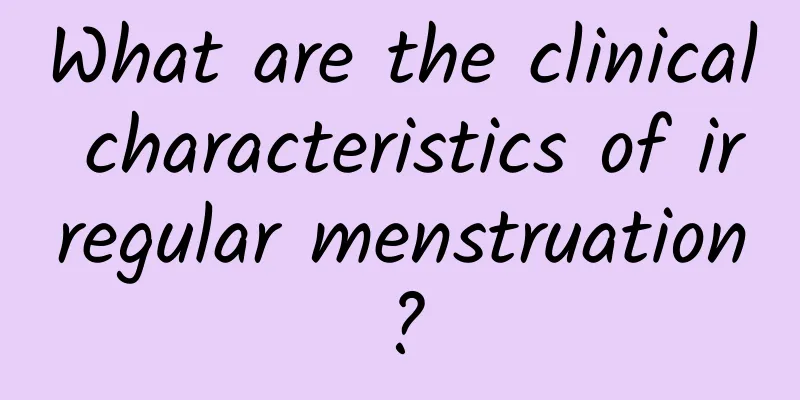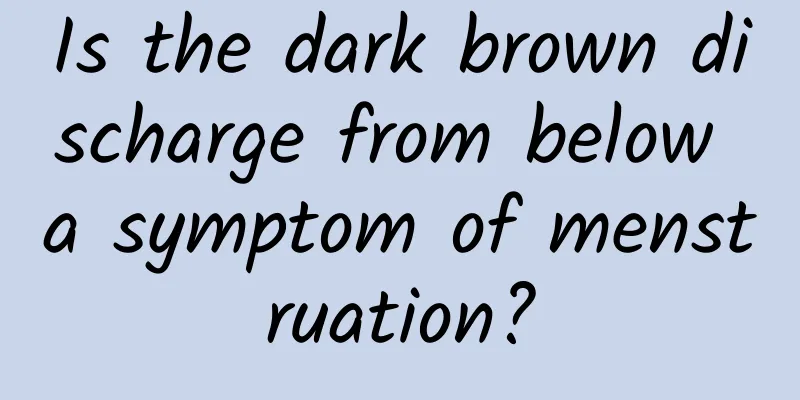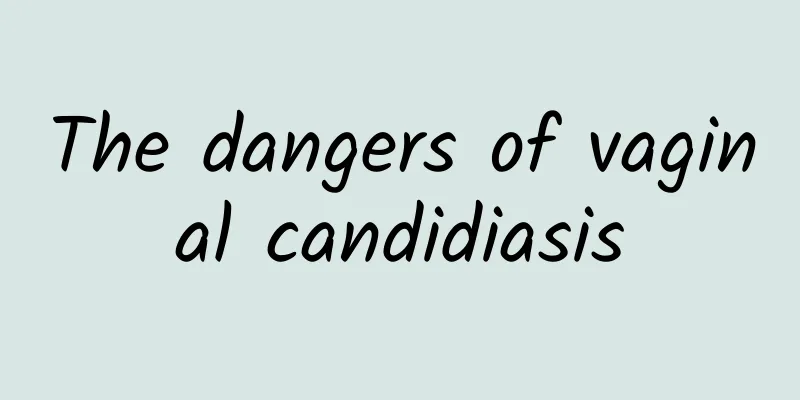Mediterranean diet isn't the only way to reduce depression risk! Nutritionist Li Zhiwei: Diet "Three Mores and Two Lesses" to Fight Depression
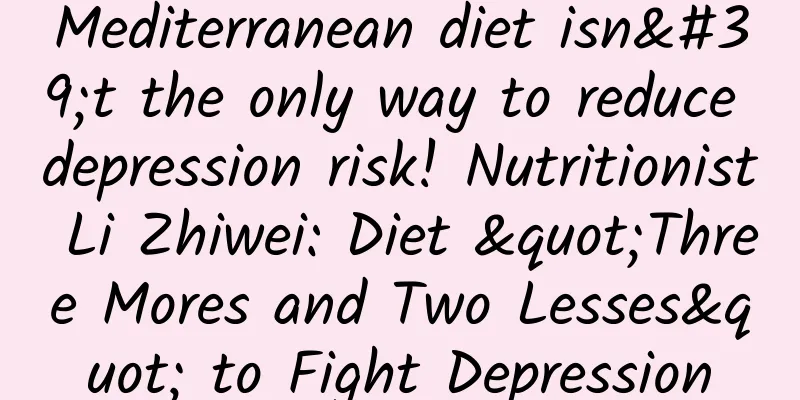
|
Artist Coco Lee suffered from depression during her lifetime, which attracted public attention. According to statistics published by the World Health Organization (WHO) in 2020, depression is one of the top three serious diseases affecting the world. Depression not only causes disability in personal life, but also seriously affects the family's socioeconomic burden. Nutritionist Vivian Li Zhiwei said that according to research findings, the Mediterranean diet can help reduce the risk of depression. In addition to the research findings on "the impact of the Mediterranean diet on depressive symptoms", nutritionist Vivian Li Zhiwei also shared "the impact of fish and seafood on depressive symptoms" and "the impact of tea and sweet drinks on depressive symptoms". Let us all understand that a "three more and two less" diet can help improve or prevent depression, and help patients with depression overcome their difficulties. Mediterranean diet reduces risk of depression: StudyA study recruited 15,980 healthy adults and followed them for about 10 years, of which 666 were diagnosed with depression. Scholars analyzed the dietary patterns of these subjects and found that the Mediterranean diet helps reduce the risk of depression, and those who consume more vegetables and nuts have a lower risk of depression. On the contrary, consuming fried fast food is likely to increase the risk of depression. Scholars further discovered that the anti-depressant effect of the Mediterranean diet may be related to intestinal bacteria. Depressed patients often have an imbalance in their intestinal flora. There is already a lot of evidence to support that intestinal flora has an influence on signaling molecules in the central nervous system, such as the brain, especially in stress-related diseases (such as depression). The MyNewGut project found that the Mediterranean diet affects intestinal bacteria and may exert anti-depressant effects through the gut-brain axis, so people who eat a Mediterranean diet have a lower incidence of depression. Based on this, scholars recommend that patients with depression should adhere to the Mediterranean diet, which is based on plant-based ingredients and rich in unsaturated fatty acids, fish, phytochemicals, and dietary fiber. Note: MyNewGut is an EU-funded project that aims to address diet-related diseases and disorders by understanding the impact of gut microbiome composition on calorie balance and the brain. The MyNewGut project found that the Mediterranean diet affects intestinal bacteria and may exert anti-depressant effects through the gut-brain axis, so people who eat a Mediterranean diet have a lower incidence of depression. The joy of being like a fish in water, eating fish can fight depressionA study conducted in Finland found that people who consumed fish less than once a month had a 2.6 times higher risk of depression than those who ate fish regularly. The mental health-boosting effect of eating fish also works on young women. A study of Australian women aged 26-36 found that women who ate fish at least twice a week had a 25% lower risk of depression than women who consumed fish less than twice a week. In addition, scholars conducted an ecological analysis on the dietary patterns of different countries and the incidence of depression and schizophrenia. The results found that in terms of differences in dietary habits among countries, insufficient intake of fish and seafood was associated with a higher national incidence of depression and schizophrenia. Therefore, encouraging citizens to consume fish and seafood may be beneficial to promoting national mental health. Tea is rich in catechins or green tea polyphenols, which have anti-depressant effectsDrinking tea is a kind of enjoyment. Nutritionist Li Zhiwei shared that she likes to give herself a break with a cup of tea in the afternoon when she is busiest at work. As the tea leaves are brewed, the fragrance of the tea diffuses in the air, and then a cup of sweet tea goes into the stomach, the depressed mood dissipates, and the mood becomes open unconsciously. I used to think that this was a "placebo" for my mood, but after reading some literature I realized that there is scientific evidence that drinking tea can fight depression. Tea is rich in various phytochemicals, the most well-known of which are catechins or green tea polyphenols; studies have found that these phytochemicals present in tea have anti-depressant effects in the human body through their antioxidant effects. The study recruited a total of 537 Japanese people aged 20-68 and found that participants who drank at least 4 cups of green tea a day had a significantly lower incidence of depression compared to participants who drank less than 1 cup of green tea a day; a cup of green tea weighs 150-170 ml, so four cups is about 600-680 ml, which is about the amount of two cups in a typical household mug. Therefore, scholars encourage people to drink green tea rich in phytochemicals in moderation to play a role in protecting mental health. The happiness brought by sweets and drinks is short-livedHave you ever had such an experience? When enjoying sweets and drinks, people feel very happy and cheerful. This is mainly because the refined sugar in sweets and drinks will be quickly converted into blood sugar after being digested by the human body. The rise in blood sugar will stimulate the secretion of insulin. Insulin will help tryptophan enter the brain to synthesize the "happy hormone" serotonin, which makes people feel happy. However, the happiness brought by sweet drinks is short-lived. After the blood sugar is quickly absorbed and utilized by human cells, the blood sugar that has just risen rapidly will drop immediately. At the same time, your mood will also fall to the bottom, and it may even be worse than before enjoying the sweet drinks. In other words, our mood changes with the rapid rise and fall of blood sugar after eating, so if we can avoid consuming large amounts of foods that promote rapid fluctuations in blood sugar, it will help stabilize our mood. Before discussing the relationship between blood sugar fluctuations and emotional health, let’s first understand the “glycemic index (GI)”. The glycemic index is based on the increase in blood sugar within 2 hours after consuming 100 grams of pure glucose, and is obtained by comparing the increase in blood sugar within 2 hours after consuming other foods with the increase in blood sugar after consuming pure glucose. The higher the glycemic index of a food, the faster blood sugar will rise after consuming the food. Therefore, we can see that the sweet foods and drinks we mentioned in the previous article that will promote rapid blood sugar rise are foods with a high glycemic index. Studies have found that a diet with a high glycemic index may be a risk factor for depression in postmenopausal women. Studies have also shown that refined sugar from sweetened beverages has an adverse effect on a person’s long-term mental health, and that this negative effect exists in both men and women (9), suggesting that reducing sugar intake may help promote better mental health. Diet "Three More and Two Less" to Fight DepressionBased on the above literature, nutritionist Vivian Li Zhiwei recommends that everyone should adopt a "three more and two less" diet to fight depression. Eating a Mediterranean diet, consuming more fish and seafood, drinking green tea in moderation, and reducing the intake of sweets and beverages will help promote mental health. The article comes from www.Taiwan Nutritionist.com |
Recommend
Does pelvic inflammatory disease cause buttock pain? It may cause
The main symptom of pelvic inflammatory disease i...
How much does a painless abortion cost?
For women who want to have a healthy baby, aborti...
Auxiliary examination of uterine fibroids How to treat uterine fibroids
Uterine fibroids grow rapidly and can undergo dif...
What is Pelvic Inflammatory Disease Massage Therapy?
What is pelvic inflammatory disease massage thera...
Foods to avoid for those with congenital absence of vagina
What dietary restrictions do female patients with...
Lost 71kg after surgery and suffered from diarrhea due to improper diet
Gastric bariatric surgery can accelerate weight l...
Introduction to the symptoms of the four major types of vaginitis
The symptoms of vaginitis can be mainly observed ...
How can women prevent adnexitis?
Among the gynecological diseases that women are m...
What should women pay attention to in their diet during menopause?
During menopause, we need to pay attention to som...
Fight obesity in summer by eating cooling fruits! Traditional Chinese Medicine teaches you how to eat fruit to lose weight
In the summer when the sun is scorching, if you w...
What to eat to prevent uterine fibroids
Since uterine fibroids are now relatively large, ...
Proper nutritional supplementation can improve
The average age of first menstruation for Taiwane...
Symptoms of chorionic carcinoma after abortion
Symptoms of choriocarcinoma after abortion may in...
What happens if I have back pain during menstruation?
What happens if I have back pain during menstruat...
What are the treatment measures for dysmenorrhea in life?
Among gynecological diseases, dysmenorrhea is one...

